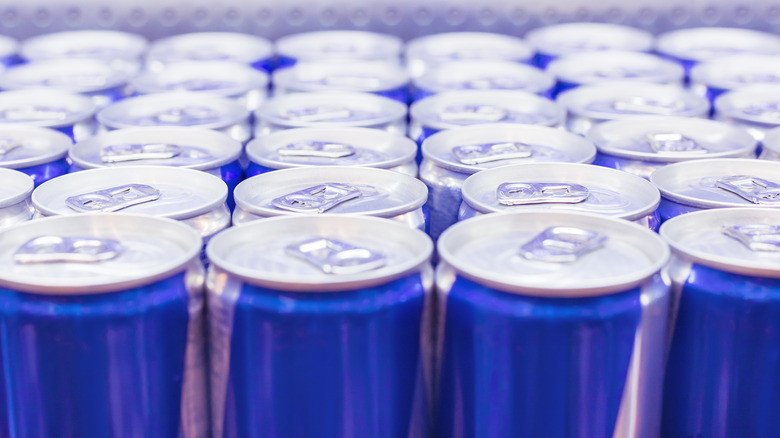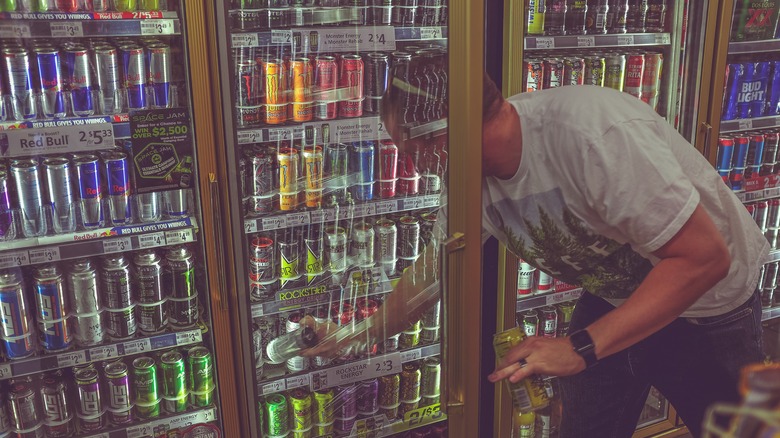Do Energy Drinks Expire?
Energy drinks have become exceedingly popular worldwide, with global sales expected to reach almost $90 billion within the next four years, per Research and Markets. According to the Mayo Clinic, energy drinks rank as the second most popular dietary supplement among teens and young adults in the U.S., second only to multivitamins. With caffeine content of the average energy drink averaging anywhere from 100 to 300 milligrams per serving, it's not surprising that these beverages are a top choice for some of the 90% of adults who consume caffeine daily.
Advocates of energy drink consumption point to the health benefits of other ingredients, including taurine, which has been suggested to improve athletic and mental performance (per the Mayo Clinic). According to Healthline, other ingredients that can be found in energy drinks include B vitamins, L-carnitine, and herbal extracts such as guarana and ginseng, all of which can help boost energy and possibly improve alertness and brain function. Of course, all of these assorted ingredients can make one curious about the shelf life of energy drinks and whether they expire at all.
Energy drinks do have a shelf life
When properly stored in a cool location and away from sunlight, energy drinks will usually stay potable for anywhere from six to nine months after the expiration date listed on the packaging. However, in some cases, it may be safe to drink them past that date, as the preservatives present in energy drinks could keep them viable for up to two years. That said, if an energy drink's can or bottle is leaking, rusted, or bulging, you should discard it right away and avoid drinking it.
Although it may be considered technically safe to drink past their expiration date, it's not advisable. Over time, the nutrients will begin to lose their potency and the preservatives can become saturated. When this happens, you can experience unpleasant side effects, including headaches and hormonal issues. The drink can also begin to lose its flavor and color, making it unpleasant to consume.
Caution should be taken with energy drinks
Expiration dates aside, anyone looking at adding energy drinks to their diet should be cautious, as according to the Centers for Disease Control and Prevention, these drinks can carry with them some health risks. These risks include dehydration, irregular heartbeat, insomnia, and anxiety. In addition, a 2013 review published by the Center for Behavioral Health Statistics and Quality reported that in 2011, more than 20,000 emergency room visits involved energy drink consumption.
Energy drinks are also known for their high sugar content, which can cause health problems as well, notes the Harvard T.H. Chan School of Public Health. Drinks that are high in sugar can cause blood sugar levels to spike and lead to chronic conditions such as weight gain, inflammation, and diabetes. Energy drinks can also offer a wide range of negative side effects, including aggression, stress, high blood pressure, and stomach irritation. Given these potential side effects, it's advisable to take care when drinking energy drinks, read the labels to know what the contents are, and be aware of the expiration date to avoid any potential problems.



